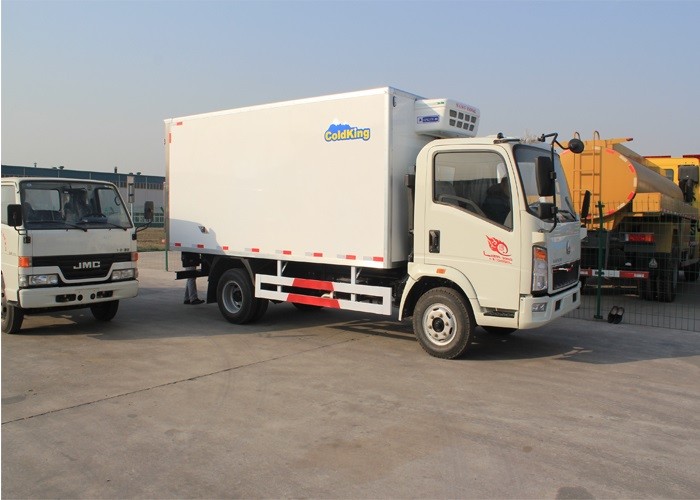Introduction
Concrete trucks play an essential role in construction projects, transporting ready-mixed concrete from batching plants to job sites. One crucial factor that often goes unnoticed is the weight of these trucks. Understanding the weight of concrete trucks, including factors that affect it, is vital for safety, planning, and regulatory compliance. In this article, we will delve into the various aspects of concrete truck weight, including its significance, how it varies based on load and design, and practical tips for handling them effectively.
What is a Concrete Truck?
Definition and Purpose
A concrete truck, also known as a concrete mixer truck, is a specialized vehicle designed to transport and mix concrete. These trucks are equipped with a rotating drum that continuously mixes the concrete while en route to ensure it remains fresh and workable when it arrives at the construction site.
Types of Concrete Trucks
- Standard Mixer Trucks: These trucks have a rotating drum and can carry a maximum of 10-14 cubic yards of concrete.
- Reed Trucks: Designed for larger projects, these trucks can carry 12-20 cubic yards.
- Volumetric Mixers: These trucks mix concrete on-site and can hold separate materials for precise mixing.
Factors Influencing the Weight of a Concrete Truck
Empty Weight of Concrete Trucks
The base weight of a concrete truck without a load is typically between 20,000 to 30,000 pounds (9,072 to 13,607 kg), depending on the truck’s design, materials, and features.
Loaded Weight of Concrete Trucks
When loaded with concrete, the weight significantly increases. A full load can weigh anywhere from 50,000 to 75,000 pounds (22,680 to 34,019 kg) or more. The exact weight depends on the amount of concrete and the truck’s capacity.
Example of Weight Calculation
| Truck Type | Empty Weight (lbs) | Capacity (cubic yards) | Concrete Weight per Cubic Yard (lbs) | Loaded Weight (lbs) |
|---|---|---|---|---|
| Standard Mixer | 24,000 | 10 | 4,000 | 64,000 |
| Reed Truck | 28,000 | 15 | 4,000 | 88,000 |
Regulatory Weight Limits for Concrete Trucks
Federal Regulations
The Federal Highway Administration (FHWA) imposes weight limits on commercial vehicles to ensure road safety and infrastructure integrity. The gross vehicle weight limit is typically 80,000 pounds (36,287 kg) for trucks traveling on interstate highways.
State Regulations
States may have their own regulations regarding weight limits, sometimes allowing for heavier loads under special permits for concrete trucks. It is crucial for truck operators to know state-specific laws to avoid fines and accidents.
Importance of Weight Management in Concrete Transport
Safety Concerns
Overloaded trucks can lead to accidents, damage to roads, and construction site hazards. Understanding the maximum allowable weight ensures safer operations and reduces risks for drivers and workers.
Impact on Fuel Efficiency
The weight of a concrete truck affects fuel consumption. Heavier loads can lead to higher fuel costs, making weight management a key concern for concrete companies.
Effects on Project Timelines
Delays often arise from miscalculations regarding truck loads, resulting in transportation issues or the need for additional trucks. Efficient weight management can help streamline construction schedules.
Best Practices for Managing Concrete Truck Weight
Weight Monitoring Systems
Modern concrete trucks often come equipped with onboard scales that provide real-time weight data. Utilizing these systems helps ensure compliance with weight regulations.
Training Drivers
Providing proper training for drivers on load management, weight limits, and safe driving practices can significantly improve safety and efficiency.
Regular Maintenance Checks
Regular inspections and maintenance of concrete trucks can help identify potential issues that could affect weight limits, such as tire pressure and proper loading practices.
Real-World Examples of Concrete Truck Weight Challenges
Case Study: Construction Project in a Urban Area
In a recent urban construction project, a concrete company faced fines due to overloaded trucks causing road damage. After implementing monitoring systems, they reduced overloading incidents by 40%.
Case Study: Rural Construction Challenges
On a rural job site, a company learned that heavy rains affected the ground’s capacity to support weight. They had to adjust their concrete load strategy to avoid getting stuck, showcasing the importance of evaluating external conditions affecting load safety.
Future Trends in Concrete Truck Weight Management
Technological Advancements
Innovations in truck design, such as lighter materials and advanced weight monitoring technologies, will continue to improve the safety and efficiency of concrete trucks.
Changes in Regulations
As road infrastructure ages, regulations may tighten regarding weight limits, pushing the construction industry to adapt with more efficient concrete transport methods.
FAQ Section
1. What is the average weight of a loaded concrete truck?
The average weight of a loaded concrete truck typically ranges from 50,000 to 75,000 pounds, depending on the truck’s capacity and the amount of concrete it carries.
2. How much concrete can a standard mixer truck carry?
A standard mixer truck can carry approximately 10 to 14 cubic yards of concrete when fully loaded.
3. Are there specific weight regulations for concrete trucks?
Yes, concrete trucks must adhere to both federal and state weight regulations, with the general gross vehicle weight limit typically set at 80,000 pounds on interstate highways.
4. How does the weight of a concrete truck affect fuel consumption?
Heavier concrete loads can lead to higher fuel consumption, impacting operational costs for concrete companies.
5. What can be done to prevent overloaded concrete trucks?
Implementing weight monitoring systems, training drivers on load management, and conducting regular vehicle inspections can help prevent overloaded trucks.
6. Why is it important to manage the weight of concrete trucks?
Managing the weight is crucial for safety, compliance with regulations, fuel efficiency, and preventing delays in construction projects.





